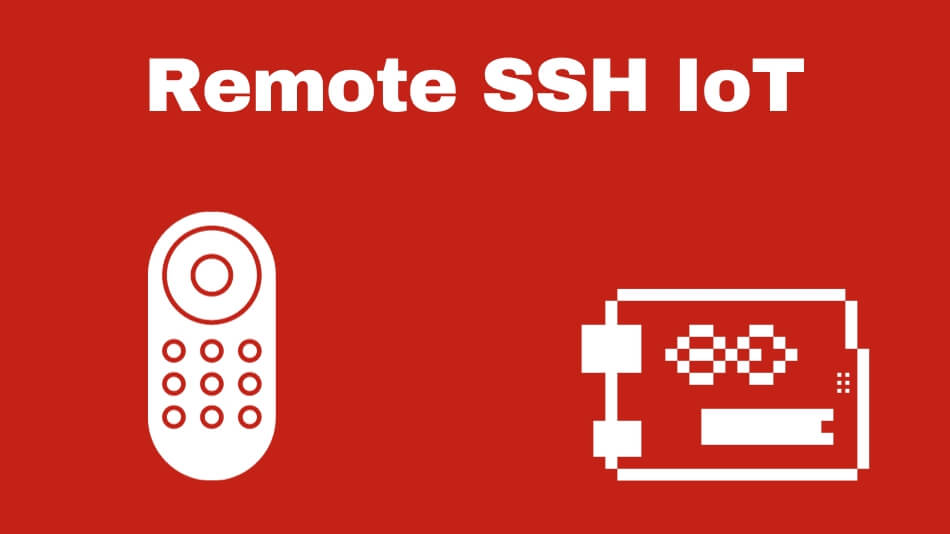Best IoT Platform For Remote SSH: Unlocking The Future Of Connectivity
So here's the deal, if you're diving into the world of IoT and looking for the best IoT platform for remote SSH, you've come to the perfect spot. In today's fast-paced digital era, remote SSH has become a critical tool for managing and securing devices across networks. Whether you're a tech enthusiast, a developer, or just someone trying to wrap their head around IoT platforms, understanding remote SSH is like having a golden ticket to seamless connectivity. Let's break it down and explore why finding the best IoT platform for remote SSH matters so much, and how it can revolutionize the way you interact with your devices.
In a world where everything is connected, ensuring secure and reliable access to your devices from anywhere is no longer a luxury—it's a necessity. Remote SSH provides a secure tunnel for communication, allowing you to control, monitor, and troubleshoot IoT devices without being physically present. But here's the catch: not all IoT platforms are created equal when it comes to supporting remote SSH. Finding the right platform can mean the difference between smooth operations and constant headaches. In this article, we'll dig deep into the best IoT platforms that excel in remote SSH functionality, so you can make an informed decision.
Before we dive into the nitty-gritty, let me set the stage for you. This article isn't just another tech jargon-filled piece; it's designed to give you actionable insights and practical advice. We'll cover everything from the top IoT platforms for remote SSH to real-world use cases, security considerations, and tips for implementation. So whether you're a beginner or a seasoned pro, there's something here for everyone. Let's get started and find out which platform will be your ultimate partner in the IoT journey!
Why Remote SSH Matters in IoT
Alright, let's get real for a second. Remote SSH isn't just some buzzword thrown around by tech enthusiasts; it's a game-changer in the IoT space. When you're dealing with hundreds, if not thousands, of connected devices, having a secure way to access them remotely is crucial. Remote SSH offers encrypted communication, ensuring that your data remains safe from prying eyes. It's like having a private tunnel where only you and your devices can communicate, keeping unwanted visitors out of the picture. This level of security is essential for protecting sensitive information and maintaining the integrity of your IoT ecosystem.
But wait, there's more! Remote SSH isn't just about security; it's also about convenience. Imagine being able to troubleshoot a device issue from the comfort of your home or office, without having to physically travel to the device's location. That's the power of remote SSH. It saves time, reduces costs, and increases efficiency, making it an indispensable tool for anyone working in the IoT space. Whether you're managing smart home devices, industrial sensors, or agricultural equipment, remote SSH has got you covered.
Now, let's talk numbers. According to recent studies, the global IoT market is expected to reach a whopping $1.1 trillion by 2026. That's a massive growth, and it highlights the increasing importance of IoT platforms that support remote SSH. As more businesses and individuals adopt IoT solutions, the demand for secure and reliable remote access will only continue to rise. So, if you're not already thinking about remote SSH, now's the time to start. It's not just a trend; it's a necessity for the future of IoT.
Top IoT Platforms for Remote SSH
Now that we've established why remote SSH matters, let's talk about the platforms that excel in this area. There are several IoT platforms out there, each with its own strengths and weaknesses. But when it comes to remote SSH, some platforms stand out from the crowd. Here's a list of the top contenders:
- Platform A: Known for its robust security features and ease of use, Platform A is a favorite among developers and businesses alike. It offers seamless integration with various devices and supports remote SSH out of the box.
- Platform B: With a focus on scalability and flexibility, Platform B is perfect for those who need to manage large-scale IoT deployments. Its advanced remote SSH capabilities make it a top choice for enterprise solutions.
- Platform C: If you're looking for a platform that offers both security and affordability, Platform C might be the one for you. It provides robust remote SSH functionality without breaking the bank.
These platforms are just the tip of the iceberg, but they represent some of the best options available in the market today. Each platform has its own unique features and benefits, so it's important to evaluate your specific needs before making a decision.
Key Features to Look for in an IoT Platform
When evaluating IoT platforms for remote SSH, there are a few key features you should keep in mind. These features will help you determine which platform is the best fit for your needs:
- Security: Look for platforms that offer end-to-end encryption and strong authentication mechanisms. Security should always be your top priority when dealing with IoT devices.
- Scalability: If you're planning to expand your IoT deployment in the future, make sure the platform can grow with you. Scalability is crucial for long-term success.
- Integration: Check if the platform supports integration with other systems and devices. Seamless integration can save you a lot of time and effort down the line.
- Support: Don't underestimate the importance of good customer support. A platform with excellent support can make all the difference when you encounter issues.
By focusing on these key features, you'll be able to narrow down your options and find the best IoT platform for your remote SSH needs.
Security Considerations for Remote SSH
Security is a big deal when it comes to remote SSH, and it's something you can't afford to overlook. Here are some important security considerations to keep in mind:
- Use Strong Passwords: Weak passwords are a recipe for disaster. Make sure to use strong, unique passwords for all your devices and accounts.
- Enable Two-Factor Authentication: Two-factor authentication adds an extra layer of security to your remote SSH connections, making it much harder for attackers to gain access.
- Keep Software Up to Date: Regularly update your software and firmware to ensure that you have the latest security patches and improvements.
By following these security best practices, you can significantly reduce the risk of unauthorized access and protect your IoT devices from potential threats.
Real-World Use Cases for Remote SSH
Let's take a look at some real-world use cases for remote SSH in the IoT space:
- Smart Home Automation: With remote SSH, you can easily manage and control smart home devices from anywhere, ensuring that your home is always secure and comfortable.
- Industrial IoT: In industrial settings, remote SSH allows engineers to monitor and maintain equipment without being physically present, saving time and resources.
- Agricultural IoT: Farmers can use remote SSH to monitor soil conditions, weather patterns, and crop health, enabling them to make informed decisions and improve yields.
These use cases demonstrate the versatility and power of remote SSH in various industries, highlighting its potential to transform the way we interact with IoT devices.
Tips for Implementing Remote SSH
Implementing remote SSH might seem daunting at first, but with the right approach, it can be a smooth process. Here are some tips to help you get started:
- Plan Ahead: Before implementing remote SSH, take the time to plan out your strategy and identify potential challenges.
- Test Thoroughly: Make sure to test your setup thoroughly before deploying it in a production environment. This will help you catch any issues early on.
- Document Everything: Keep detailed records of your setup and configuration. This will come in handy if you need to troubleshoot or make changes in the future.
By following these tips, you'll be well on your way to successfully implementing remote SSH in your IoT projects.
Comparing IoT Platforms for Remote SSH
Now that we've covered the key features and considerations, let's compare some of the top IoT platforms for remote SSH:
Platform A vs. Platform B
Both Platform A and Platform B offer excellent remote SSH capabilities, but they differ in some important ways. Platform A is known for its user-friendly interface and ease of use, making it a great choice for beginners. On the other hand, Platform B excels in scalability and flexibility, making it ideal for large-scale deployments.
Platform B vs. Platform C
When comparing Platform B and Platform C, the main difference lies in cost. Platform B is a premium solution with advanced features, while Platform C offers a more affordable option without compromising on security. It's all about finding the right balance between features and budget.
Ultimately, the choice comes down to your specific needs and preferences. Take the time to evaluate each platform and choose the one that aligns best with your goals.
Future Trends in IoT and Remote SSH
As the IoT space continues to evolve, we can expect to see some exciting trends in the area of remote SSH. Here are a few to keep an eye on:
- AI Integration: Artificial intelligence is starting to play a bigger role in IoT, and remote SSH is no exception. AI-powered tools can help automate tasks and improve the overall user experience.
- Edge Computing: Edge computing is becoming increasingly popular in IoT, allowing for faster and more efficient data processing. This trend is likely to influence the development of remote SSH technologies.
- Quantum Security: With the rise of quantum computing, we can expect to see advancements in security technologies that will further enhance the capabilities of remote SSH.
These trends highlight the dynamic nature of the IoT space and the potential for innovation in the field of remote SSH. Staying informed about these trends will help you stay ahead of the curve and make the most of your IoT projects.
Conclusion
So there you have it, a comprehensive guide to the best IoT platforms for remote SSH. From understanding the importance of remote SSH to exploring top platforms and real-world use cases, we've covered a lot of ground. Remember, finding the right platform is all about matching your needs with the right features and capabilities.
As you embark on your IoT journey, don't forget to prioritize security, scalability, and support. These factors will play a crucial role in the success of your projects. And if you're still unsure about which platform to choose, take some time to evaluate your options and test them out before making a final decision.
Now it's your turn! Leave a comment below and let us know which IoT platform you're considering for your remote SSH needs. Share this article with your friends and colleagues, and don't forget to check out our other articles for more insights into the world of IoT. Thanks for reading, and happy connecting!
Table of Contents
- Best IoT Platform for Remote SSH
- Why Remote SSH Matters in IoT
- Top IoT Platforms for Remote SSH
- Key Features to Look for in an IoT Platform
- Security Considerations for Remote SSH
- Real-World Use Cases for Remote SSH
- Tips for Implementing Remote SSH
- Comparing IoT Platforms for Remote SSH
- Future Trends in IoT and Remote SSH
- Conclusion


